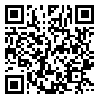Volume 10, Issue 4 (Winter 2025)
J Health Res Commun 2025, 10(4): 12-23 |
Back to browse issues page
Download citation:
BibTeX | RIS | EndNote | Medlars | ProCite | Reference Manager | RefWorks
Send citation to:



BibTeX | RIS | EndNote | Medlars | ProCite | Reference Manager | RefWorks
Send citation to:
Jorbonyan A, Khosrozadeh M, Karimi-Rozveh A. Comparison of the Mental Health Status of Healthcare Employees Working at COVID vs. Non-COVID Units at Shariati Hospital during 2021 in Tehran, Iran. J Health Res Commun 2025; 10 (4) :12-23
URL: http://jhc.mazums.ac.ir/article-1-1088-en.html
URL: http://jhc.mazums.ac.ir/article-1-1088-en.html
Assistant Professor of Nursing, Department of Medical-Surgical Nursing and Basic Sciences, School of Nursing & Midwifery, Tehran University of Medical Sciences, Tehran, Iran
Abstract: (2437 Views)
Introduction and purpose: During the COVID-19 pandemic, healthcare workers were at the forefront of combating the disease and were exposed to significant psychological pressures. This study aimed to compare the mental health status of employees in COVID and non-COVID units at Dr. Shariati Hospital affiliated to Tehran University of Medical Sciences, Tehran, Iran.
Methods: This descriptive-comparative study was conducted cross-sectionally in 2021. The participants included 232 individuals who were selected using systematic random sampling. The data were collected using a demographic characteristics form and the General Health Questionnaire (GHQ-28). The obtained data were then analyzed utilizing SPSS software (version 24) through descriptive and analytical statistical methods (independent t-test).
Results: The mean (SD) age of participants was 35.5 (±8.28) years. Based on the GHQ criterion (>23), out of those working at the COVID and non-COVID units, 53.3% and 44.7% of the employees were suspected of experiencing varying degrees of mental health disorders, respectively. The overall mean (SD) score of the GHQ questionnaire for all employees was obtained at 30.67(10.80). Independent t-test results revealed that the employees at the COVID unit demonstrated significantly worse conditions in overall mental health disorder status (t=4.20, P<0.05), anxiety symptoms (t=5.55, P<0.05), and physical symptoms (t=4.09, P<0.05), compared to those in other units.
Conclusion: The research findings indicate a relatively high prevalence of mental health disorders among employees, particularly those working at COVID units. Therefore, identifying individuals at risk and adopting coping strategies, along with providing psychological counseling and support, appears crucial for enhancing employee mental health status.
Methods: This descriptive-comparative study was conducted cross-sectionally in 2021. The participants included 232 individuals who were selected using systematic random sampling. The data were collected using a demographic characteristics form and the General Health Questionnaire (GHQ-28). The obtained data were then analyzed utilizing SPSS software (version 24) through descriptive and analytical statistical methods (independent t-test).
Results: The mean (SD) age of participants was 35.5 (±8.28) years. Based on the GHQ criterion (>23), out of those working at the COVID and non-COVID units, 53.3% and 44.7% of the employees were suspected of experiencing varying degrees of mental health disorders, respectively. The overall mean (SD) score of the GHQ questionnaire for all employees was obtained at 30.67(10.80). Independent t-test results revealed that the employees at the COVID unit demonstrated significantly worse conditions in overall mental health disorder status (t=4.20, P<0.05), anxiety symptoms (t=5.55, P<0.05), and physical symptoms (t=4.09, P<0.05), compared to those in other units.
Conclusion: The research findings indicate a relatively high prevalence of mental health disorders among employees, particularly those working at COVID units. Therefore, identifying individuals at risk and adopting coping strategies, along with providing psychological counseling and support, appears crucial for enhancing employee mental health status.
Type of Study: Research(Original) |
Subject:
Public Health
Send email to the article author
| Rights and permissions | |
 |
This work is licensed under a Creative Commons Attribution-NonCommercial 4.0 International License. |







